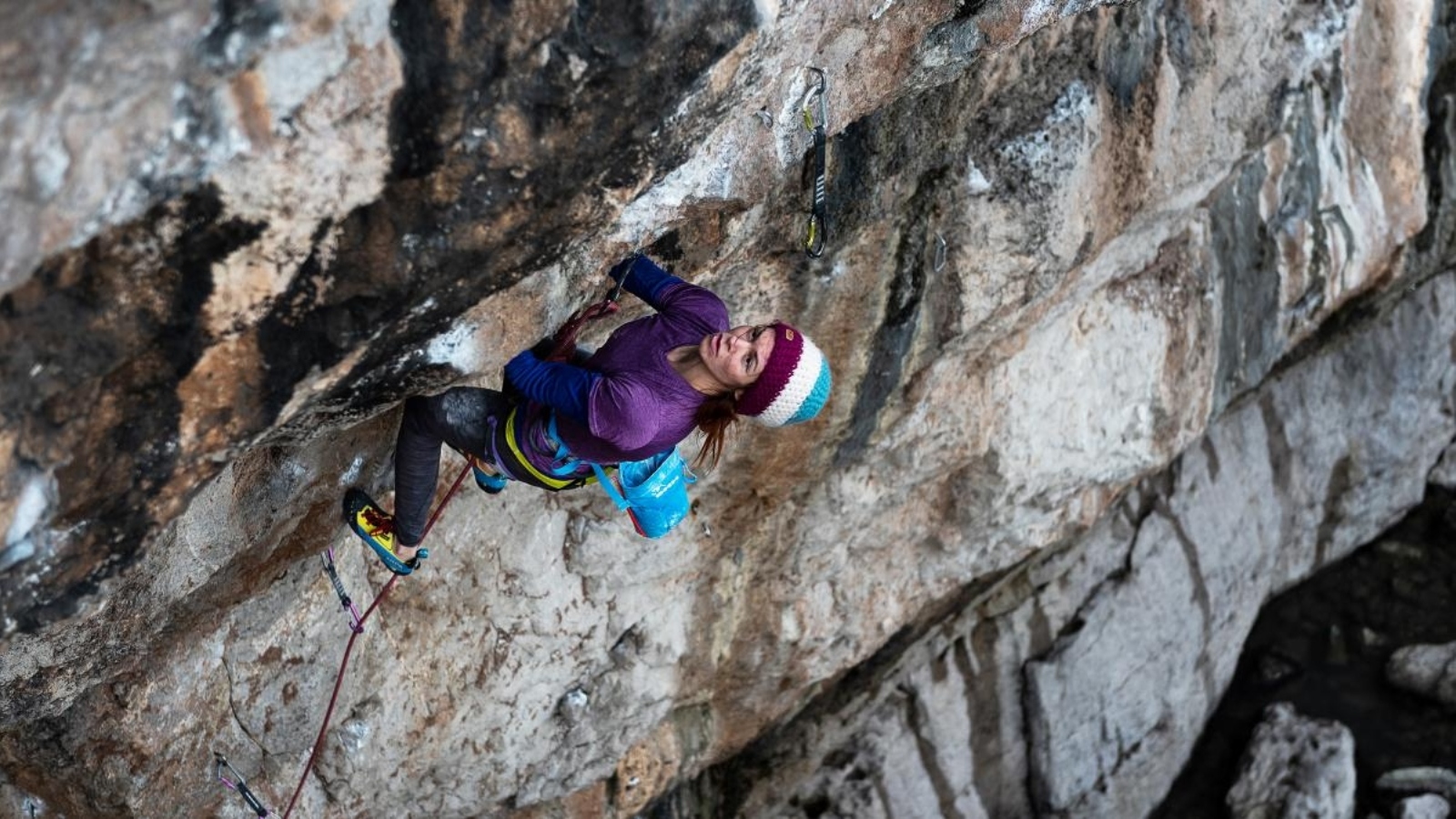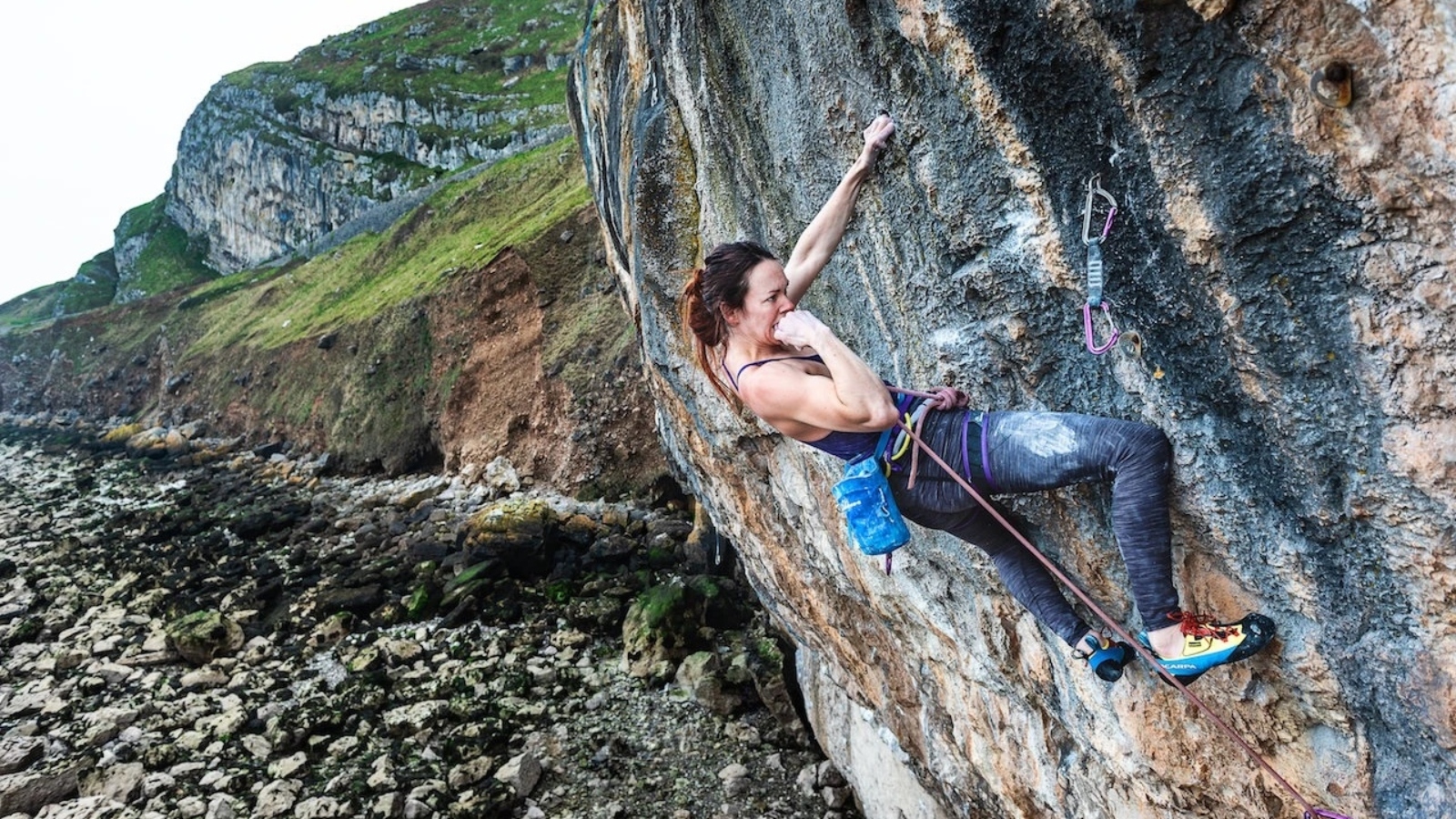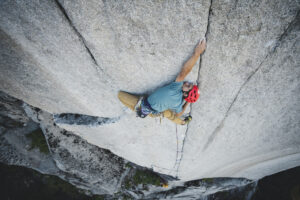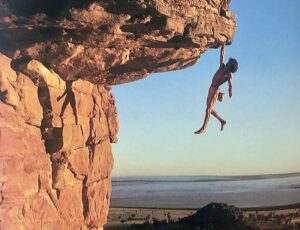In September 2019, climber Emma Twyford became the first British female to climb 9a. The accomplishment, which required more than two solid years of dedication, broke the climbing grade 9 barrier for British women. What may be more impressive is the route that she chose to break that barrier with — The Big Bang. And a just-released film by the same name documents Twyford’s ride to the chains.
The Big Bang resides at a seaside cliff in North Wales known as Lower Pen Trwyn (or ‘LPT’). Owing to the often inclement weather and the stoutness of its rock formations, crags in the U.K. are notoriously challenging. Those conditions are made all the worse when the location of the route is sea-level and metres from the shore.
So it’s little wonder why very few climbers can say they have successfully redpointed The Big Bang, which is the LPT’s ultimate test piece. When Twyford first encountered the route in 2017, only two people in the world had sent it.

Photo: Marc Langley
A bit about ‘The Big Bang’ 9a
Despite LPT’s temperamental conditions, it is home to one of the few limestone havens in the entire United Kingdom. Britain is best known for its burly gritstone trad routes, but limestone lends itself to sport climbing.
Limestone’s steepness, variety of features, and intricacy inspire the cutting-edge acrobatics seen on many advanced sport routes today. The LPT has all of that to offer, which is why it became the U.K.’s epicentre for elite sport climbing in the 1980s. Those familiar with the climbing there describe it as steep and sharp. As the area’s most difficult route, The Big Bang is no exception.
Neil Carson claimed The Big Bang‘s first ascent in 1996. The next ascent wasn’t until 2011 by James McHaffie. Reportedly, it took McHaffie just 13 days to project and redpoint the watershed line.
At the time of Carson’s ascent, the climbing world heralded it as the U.K.’s first 9a sport climb.*

Photo: Marc Langley
Emma Twyford
Twyford began trad climbing when she was just seven years old. At the age of 10, she began competing and earned the title of British Bouldering Champion when she was 24.
After retiring from competitions, Twyford turned back to trad climbing and became quickly accomplished in the style discipline. She landed several impressive E9 headpoints, one E8 flash, and numerous E7 flashes by her early 30s.
Then she turned her sights on sport climbing. When asked why she chose The Big Bang specifically, “I think because of the history behind it,” she told UK Climbing. “LPT was at the forefront of British climbing back in the day with hard and historical climbs being put up by Ben Moon and Jerry Moffatt such as Statement of Youth (Britain’s first 8a) and Liquid Ambar (8c).”
According to Twyford, setting the record as Britain’s first woman to 9a is just a bonus. “I’m more psyched about getting the 3rd ever ascent of this route. That feels pretty special, knowing it is hard and hasn’t been repeated very often, and that I’m one of three people to unlock the sequences.”
*This claim has met some dispute, particularly after Hubble at Raven Torr. Ben Moon claimed the first ascent of Hubble in 1990 and graded it 8c+ at the time. The route has seen fewer than 12 ascents since Moon’s FA. Most of the climbers that have redpointed Hubble agree that a grade of 9a more accurately reflects the route’s difficulty.
As such, Hubble is technically the first 9a sport climb in the UK, preceding The Big Bang by six years.






